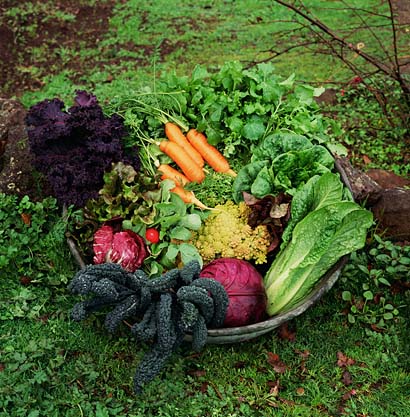
The Country Market just issued a recall of raw milk after a routine sampling by the Washington State Department of Agriculture found a possible E. coli contamination, the Spokesman Review reported.
The recalled milk was sold at the Country Market farm store at 14211 North Thorpe Road in Medical Lake and at Fresh Abundance, 2015 North Division Street, both in Spokane, Washington, said the Spokesman Review. Country Market Raw Cow Milk with expiration dates of February 4 to 11 is involved in the recalled. People who purchased milk with the expiration dates indicated are urged to return the recalled milk to the place of purchase for a full refund. the Country Market can be reached at 1.509.499.3739.
E. coli cacteria is a potentially deadly pathogen and E. coli symptoms include bloody diarrhea, Dehydration, Abdominal Cramps, and Vomiting and, in the most severe cases, kidney failure. the very young, seniors, and persons with weak immune systems are the most susceptible to foodborne illnesses.
E. coli infection can lead to other adverse health effects, some long-term and serious, such as Inflammatory Bowel Disease (IBD), which encompasses a group of disorders, including ulcerative colitis and Crohn’s disease, which cause the intestines to become inflamed. IBD can cause abdominal cramps and pain, diarrhea, weight loss, and bleeding from the intestines. Victims of E. coli Infection are also at risk of developing a form of reactive arthritis called Reiter’s Syndrome, which typically affects large weight-bearing joints such as the knees and the lower back.
Victims of E. coli food poisoning sometimes require kidney transplants and may have scarred intestines that cause lasting digestive difficulty. even E. coli patients who supposedly recovered can experience long-term health problems later on. for instance, it is estimated that 10 percent of E. coli foodborne illness sufferers develop a life-threatening complication called hemolytic uremic syndrome, or HUS, in which their kidneys and other organs fail.
We have long warned about the potential health problems associated with ingesting raw, or unpasteurized, milk and its sometimes very dangerous effects on human health. according to the Centers for Disease Control and Prevention (CDC), raw milk or raw milk products were implicated in 45 outbreaks that resulted in over 1,000 illnesses and two deaths in the United States during 1998-2005. in 1938, milk was the cause of 25 percent of all food- and water-related sickness. With the introduction of universal pasteurization—long considered one of the most successful public health endeavors of the last century—that number fell to one percent by 1993. because not all cases of food borne illness are recognized and reported, the actual number of illnesses associated with raw milk likely is greater.
According to the U.S. Food & Drug Administration (FDA), raw milk is unpasteurized milk from hoofed mammals, such as cows, sheep, or goats, that may contain a wide variety of harmful bacteria—Salmonella, E. coli O157:H7, Listeria, Campylobacter, and Brucella, to name just some—that may cause illness, even death. for decades, public health authorities, including the FDA and CDC, have expressed concerns about the hazards of drinking raw milk. since 1987, the FDA has required all milk packaged for human consumption to be pasteurized before being delivered for introduction into interstate commerce. the FDA’s pasteurization requirement also applies to other milk products, with the exception of a few aged cheeses. the FDA insists pasteurization destroys harmful bacteria without significantly changing milk’s nutritional value. Of note, it is illegal to sell raw milk for human consumption in 22 states and sale of raw milk is banned across state lines.